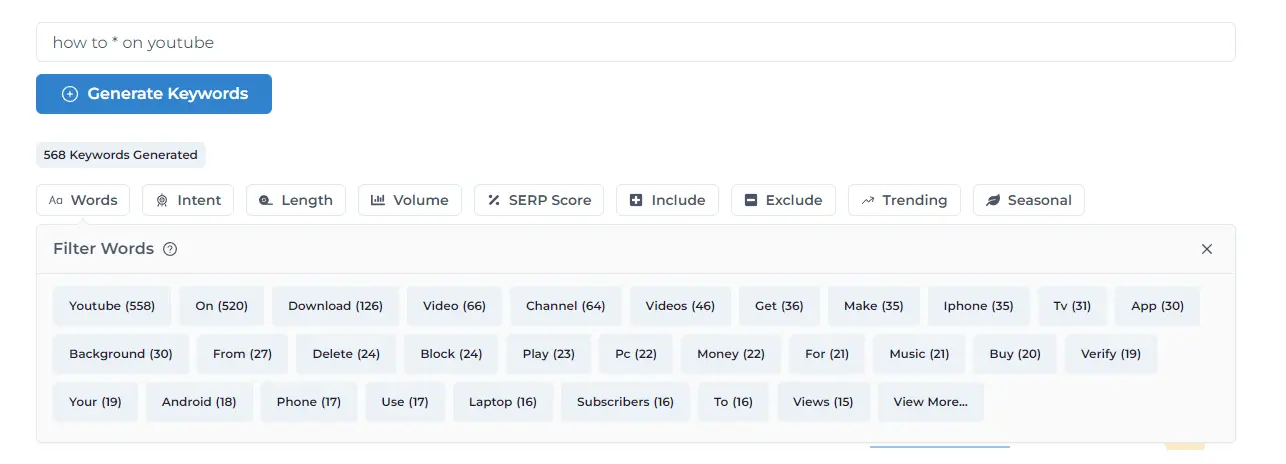Filtering Keywords
By identifying the right keywords to target, you can drive more traffic to your website and improve your overall search engine rankings. However, identifying the right keywords can be a challenge, especially when it comes to long-tail keywords.
Keyword Catcher lets you input a seed keyword and get hundreds of long-tail keywords in return. You can then filter these keywords using a variety of different criteria, including individual words found in keywords, search volume, trending and seasonal keywords, search intent, keyword length in words, SERP score, and including or excluding phrases found in keywords.
To get started with Keyword Catcher, simply enter your seed keyword in the input box at the top of the page. Then, click the “Generate Keywords” button to get a list of long-tail keywords. You can use the filters at the top of the page to narrow down your results.
- Filter By Words
One useful filter is the individual words found in keywords filter. This allows you to select specific words that you want to include or exclude from your results. For example, if you’re targeting a specific niche or industry, you can use this filter to only include keywords that contain relevant terms.
- Filter By Search Volume
Another useful filter is the search volume filter. This allows you to only include keywords that have a certain amount of monthly search volume. This can help you identify keywords that are worth targeting and can potentially drive a significant amount of traffic to your website.
- Filter By Volume Patterns
The trending and seasonal keywords filter is also useful for identifying keywords that are currently popular or relevant to a particular season or event. This can help you create content that is timely and relevant to your audience.
- Filter By Intent
The search intent filter allows you to only include keywords that are relevant to a specific type of search intent, such as informational or transactional. This can help you target keywords that are more likely to result in conversions or sales.
- Filter By Keyword Length
The keyword length filter allows you to only include keywords that are a certain number of words long. This can help you identify long-tail keywords that are more specific and may be easier to rank for.
- Filter By SERP Score
Finally, the SERP score filter allows you to only include keywords that have a certain level of competition. This can help you identify keywords that are less competitive and may be easier to rank for.
By using the various filters available, you can narrow down your results and find keywords that are relevant, timely, and have the potential to drive significant traffic to your website.

